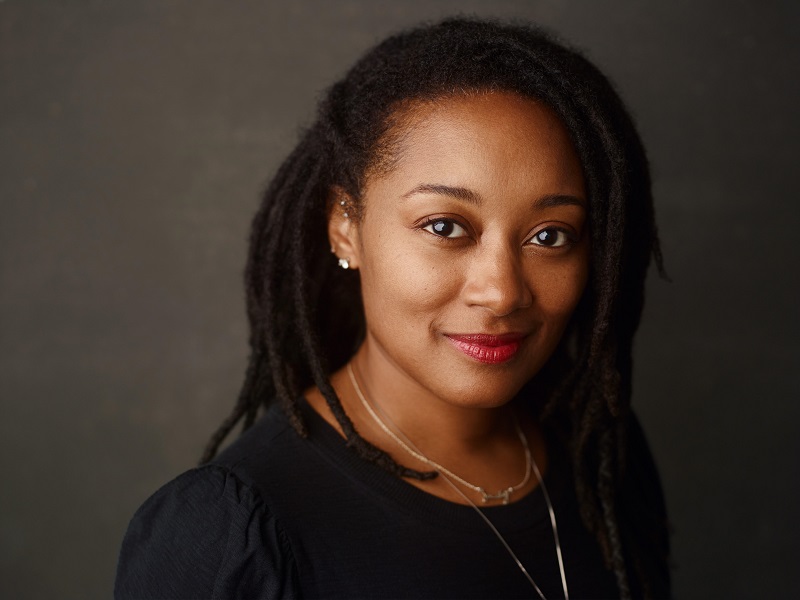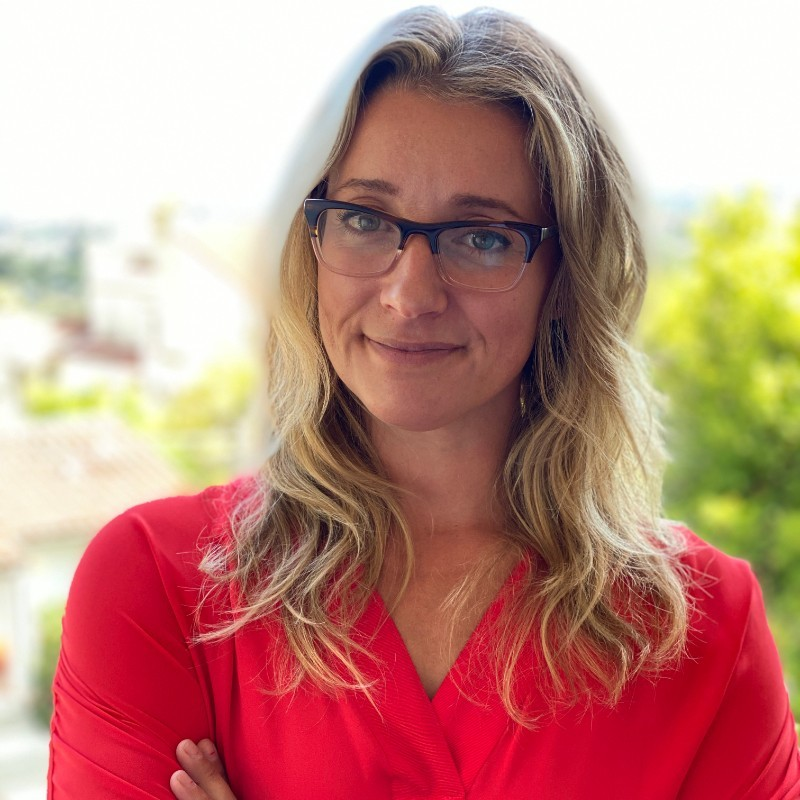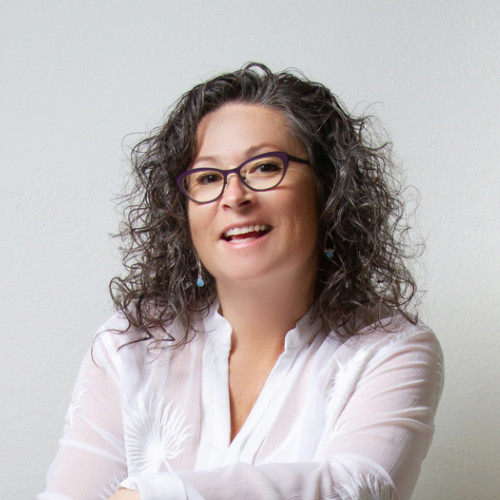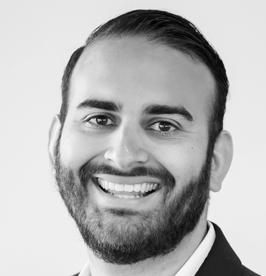ScienceMasters Series
Episode 1, PART 1: Health Equity in Clinical Trials: Featuring AstraZeneca's Jocelyn Ashford
By Jocelyn Ashford, Head of US Corporate Affairs, CVRM, AstraZeneca
Interviewed by Jen Pfau, Director of Marketing, ScienceMedia
"The ultimate measure of success to me would be that we no longer need to focus specifically on this idea of diversity. It should automatically be embedded in everything that we do."
- Jocelyn Ashford on defining success in promoting health equity in clinical trials
On the eve of the second annual Health Equity in Clinical Trials Congress, ScienceMedia's first episode of the "ScienceMasters" series explores the pressing issues and strategies to strengthen health equity in clinical trials, featuring industry visionary, Jocelyn Ashford. As a Corporate Affairs and Patient Advocacy executive with over 20 years of pharmaceutical and biotech experience, Jocelyn addresses health equity barriers and offers key solutions for policy makers, industry stakeholders, healthcare providers and beyond.
The following is a transcript from ScienceMedia's Director of Marketing, Jen Pfau, interviewing AstraZeneca's Joceyln Ashford.
JP: Let's start out with the basics, what does health equity mean to you, and what is its significance in clinical trials?
JA: [laughs] I think that's a very loaded question...What is health equity to me? Health equity to me is around every individual, no matter who you are, no matter what language you speak, no matter what insurance you carry or don't carry, you have access and the ability to participate in some base level of care that ultimately would result in positive health outcomes. That's what it means to me.
In the context of clinical trials, the only way that you can achieve health equity is if those treatments or methods that you're using to address various conditions have not been tested in the appropriate demographic, the appropriate demographic profile, then there's no way that one could achieve health equity.
So, to me, in clinical trials, it's especially important that you are able to enroll representative populations, especially here in the United States, just because that's where I live.
JP: Can you share your personal experiences or observations regarding barriers to participation in clinical trials within your community?
JA: We talk a lot about health equity in clinical trials in the black community, which is the community I identify with. And while I could list off all the things that the research represents, I really want to share with you a personal story for me.
I am someone who has lived with fibroids for most of my adult life, and I actually went to a doctor that's one of the most renowned doctors with fibroids in the country. This is a condition where there have been multiple clinical trials. I've been going to the same doctor for a very, very long time. This is one of the most published physicians in this space. And not once was asked to even participate in a clinical trial.
So, we talk a lot about mistrust in the community, in the black community, and the fact that there is a history of abuse when it comes to testing medical technology on black individuals. The piece that I think that we are starting to do is trying to build trust in these communities. So then it just becomes a matter of, are you asking people to participate if they're interested? And I can say, in all my years having fibroids, I had never been asked to participate in a clinical trial. Even though I went to a center of excellence.
JP: Based on your personal experience, what factors do you believe contribute to disparities in clinical trial access and participation among diverse populations?
JA: So many. Obviously, this idea of trust is a key underlying factor.
The second, with respect to access, I would add that not all the information about clinical trials, even just what they are, not even about a specific trial, is accessible or available in easy to find places in some institutions.
For example, when you come in as a first time patient, you're asked, 'hey, might you ever be interested in learning about a clinical trial?' And there's not an opportunity to say yes before you actually need it.
I think that's another barrier. The inclusion and exclusion criteria can be incredibly narrow, sometimes overly exclusive, around who can participate. And then the communication throughout the clinical trial can also be a challenge.
Are you receiving the right feedback back and forth, or is there perception? Pick any culture, right. We are all different. And so what that communication looks like, who's involved in that decision making process, can be unique across different populations. And I think all of those things can become barriers-if you're not looking and aware of what you're looking to address.
JP: How do you perceive the level of awareness and understanding of clinical trials within your community?
JA: I think in the black community, the awareness that they exist is very much there. The fact that there are clinical trials, why you participate in the clinical trials is probably not as well known or understood.
I believe that just in black spaces, you don't see a lot of just education around clinical trials.
We typically, if you're a black individual, studies have shown that black people tend to like to see doctors that look like them or they relate to well.
There aren't as many black investigators for clinical trials.
So if the likelihood that you're going to a black physician, and they're most likely not investigators, it probably may not be available to you.
JP: Are there specific cultural or social factors that influence attitudes towards research participation?
JA: Attitudes or history plays a really big part, specifically in the black community, from my understanding, number one, I think as a child, I grew up knowing about studies like Tuskegee.
It's something that, even if you don't know, you would expect it, just given the history of our country. So there's a level of mistrust there.
How we make decisions in different cultures is different. In some cultures, you do things more by word of mouth. Others might search the internet incessantly.
I can think about a condition that I've worked in where it's a hereditary condition that impacts very specific multiple hereditary, various conditions that impact very specific cultures and that decision making process. Do you bring your family in? Can you bring your family in? Do you know to recognize that there might be a community making this decision on behalf of this individual versus that individual themselves?
JP: And how do you think socioeconomics or access to healthcare impact participation?
JA: Socioeconomic status can definitely impact the decision making process.
I want to be careful here, because I don't believe that just because you may come from what we consider a lower socioeconomic background doesn't mean that you wouldn't want to participate in a clinical trial. I think that there are always people willing to raise their hand, but their access to being asked to participate in a clinical trial is probably lower because of the doctors they may be seeing or whether they even see a doctor.
The other impact that may come from a lower socioeconomic background might also be the fact that you may not be used to asking for what you want and actually receiving it. So when it comes to being asked to participate in a clinical trial, someone might say, 'Yes, I would absolutely love to participate,' but they may not know the nuances of scheduling. Maybe they have other things that they have to do during the course of the day, they may work multiple jobs, they may have difficulty with transportation, and they may not realize that they can ask their investigator about some of those services, and they may self select themselves out of participating in a clinical trial.
And then, of course, comes that aspect of just education levels. Are you able to understand the materials and follow along with the conversation around what being in a clinical trial means?
The explanation of a clinical trial, understanding the expectations of you as a participant, and the way today clinical trials are often explained to participants assumes some base level of understanding that may not be the case with these particular individuals. That doesn't mean that it applies to all, but I think that the research shows that is a possibility, that maybe a lower literacy level contributes to that aspect of their willingness or ability to participate.
JP: Let's hone in on trust and transparency more. How can researchers and trial organizers enhance that transparency and communication to build that trust?
JA: Sure, I think there are a lot of ways. I think the first step is how do you know or talk about clinical trials before they're actually needed? So if you're a doctor seeing a patient, or if you are a family where a person understands clinical trials, having that conversation around, "would you be willing to participate in clinical trials", is helpful in building trust.
How do you make sure that they understand before it's a necessity? Now, if you're at a point where the individual could potentially participate, I think that there are a couple of things that one could do.
Obviously, from the aspect of unconscious and conscious bias training, I think that's always really helpful.
Having resources available through multiple mechanisms is always helpful.
We know that people learn better when that information comes to them in various ways.
Maybe it's something that you read, maybe it's something that you also have visually represented. Maybe something that's also told to you.
The more ways you can share the same information, the better. Having the information on demand can be incredibly helpful, because in the moment, there's so much information coming at you, there's no way to retain it all.
Having a place or method for individuals to refer back to can also be very helpful in building trust, as it provides a way to recall what was said later on.
Building trust is really about helping make sure that people feel like you are really trying to address their needs, whether they recognize those needs in the moment or not. And sometimes those needs are not just 'this is the piece of information about the clinical trial that I expect you to hear.' It's really navigating that conversation more fluidly and making sure that you are clear in how that's communicated and transparent relative to what that individual might really want to know, versus what we think they want to know.
JP: How can trial organizers better involve the community members in the design and even conduct?
JA: Yeah, there are so many ways. The FDA put out some guidance around what some of that could look like at a base level. And some of those things might include conducting focus groups or having advisory boards before the protocol is locked and loaded.
You may want to really understand the patient journey. And guess what? You can understand that better if you actually talk to people living with the condition that you're looking to do a study around.
So there's a heavy level of both lay person and or family member involvement, as well as nonprofit organization involvement, so that you can triangulate what an organization is hearing from some of the treaters of that condition.
There's a level of partnership that you could always have with nonprofit organizations where they can get the word out for you about these clinical trials with their particular populations, that they're working with their constituents.
The internet is a great place, encouraging your sites to advertise.
And I do think that there are partners that you can look to that are developing or have an expertise in this area. Some of those, I think, are just classic organizations that understand the healthcare system and the trial space, like ScienceMedia.
JP: How do you define success in promoting health equity in clinical trials? And then secondly, what metrics or indicators do you think are important to track?
JA: Yeah, I think those are really linked.
So when I think about success in health equity in clinical trials, the first thing I think about is, are you getting a representative population?
To me, that is foundational. Now, how you get there, I think that's where you get to play. Have a little fun.
That's where the diversity action plan comes into play. What are the metrics?
I think the first metric is honestly a yes or no. Do you have a representative population in your clinical trial based on who you're studying?
A second metric is, how quickly did you do that? Were you able to? If you implement some of these practices, you might actually be able to enroll your study faster.
The last metric is around this idea of retention. I would actually match this idea of retention to health equity as well, because once you get them in, I don't know that there's enough conversation happening around what does retention look like once you actually have enrolled? What is a representative population that includes the underserved and underrepresented populations that you need in that clinical trial?
But the ultimate measure of success to me would be that we no longer need to focus specifically on this idea of diversity. It should automatically be embedded in everything that we do. Like, how silly is it that we're in the year 2024 and we're still providing information to individuals who are participating in the exact same way?
We have been running clinical trials for how long? And we don't have really clear methods to provide that education along the way.
To retain different types of individuals in a clinical study, you've got to be incredibly motivated, incredibly educated about participating in a clinical trial, and I think it's just a shame. So the other measure of success is ultimately, do we really need to have special efforts for these types of initiatives?
And the answer should feel like, no, we shouldn't be having these conversations anymore. That's how I would measure.
JP: For those that don't know, you'll be attending the Health Equity in Clinical Trials Congress. What are you looking to accomplish there and what are you looking forward to?
JA: This conference, to me, is one of my favorites. The Health Equity in Clinical Trials Congress is one where you don't just talk about the importance of health equity in clinical trials, but you actually get to touch base with people from all parts of the industry to talk about what they're doing to address health equity in clinical trials.
It's an opportunity to learn best practices and meet partners that you may not have considered before. So to me, this is the creme de la creme of conferences with respect to health equity that I want. I want to be at this conference each year.
...STAY TUNED FOR MORE.
About ScienceMasters series:
Welcome to ScienceMasters, your passport to the cutting-edge of clinical trials. Join us as we bridge the gap between innovation and impact, empowering listeners with knowledge that inspires change. ScienceMasters is your guide to navigating the ever-evolving landscape of clinical trials, where every discussion is a step toward a healthier future.
In each episode, we sit down with visionary leaders in the clinical trial space, unpacking hot topics and sharing insights that impact the patient experience, sponsors, sites, CROs, and beyond. From groundbreaking technologies to regulatory shifts, we uncover the pivotal advancements driving the latest research.















